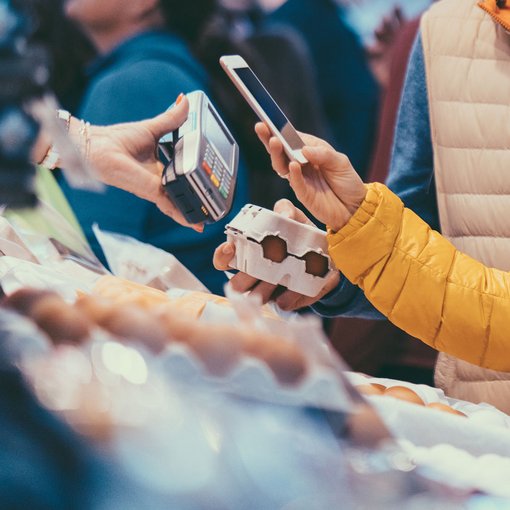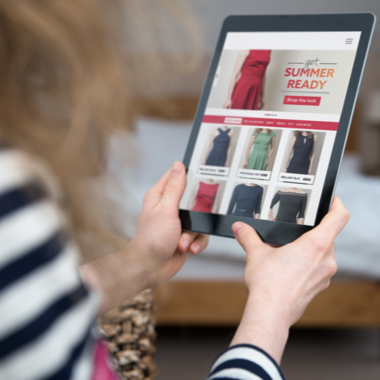
- Five minutes read
The changing ways of paying: how consumers will drive payments innovation in 2021
The next wave of payments tech evolution is going to be shaped by consumer habits.
The last 12 months. And the next…
Consumers have been embracing the digital world, adapting to exceptional circumstances over the last year. COVID-19 has not only accelerated the shift to online as social distancing measures and lockdowns have limited access to physical stores, but it’s also created increased appetite for the adoption of new payment methods.
Habits have changed – are continuing to change. We’re shopping differently and paying differently. Our 2020 Lost in Transaction research report found that 56% of consumers globally say they’ve completed an online transaction using a type of payment that’s new to them since the outbreak of COVID-19, while 61% of UK consumers are happier to use contactless cards than they were a year ago.
The increase in contactless payments – and, more importantly, consumers’ confidence in the use of contactless methods of payments – represents a significant stage in the evolution of cash. In markets such as the US and Western Europe, we’re seeing greater use of mobile payments, digital wallets and advanced cashless payments methods that have traditionally been more popular across Asia. The driver in the next 12 months is going to be how consumers will respond as things start getting back to normal.
The early signs are that our new habits will endure. Consumers are discovering more convenient ways of buying and paying, and, as in other aspects of their lives that have changed due to the pandemic, they will adopt new behaviours into the long-term if they make their lives easier.
It’s an exciting time for all payments players, with these changing trends being the catalyst that’s needed to create more immersive, secure and enjoyable consumer interactions.
Transitioning from the basics
In the past year, payments providers have played a big part in helping merchants react quickly and shift to online methods of operation to fulfil immediate consumer needs. However, there’s lots more to do.
Technology is in an advanced place, but as always, it’s the uptake that will define how impactful that tech will be. A lot of it isn’t being used (or isn’t being used in the right way). Take 3DS2 (3D Secure 2). While it’s a no-brainer in terms of enhancing online payments security and reducing fraud, merchants’ concerns around it increasing checkout drop-off is affecting the speed of migration. But in reality, it can be used to optimise the user’s checkout experience and improve the mobile payments process.
The wider challenge for payments providers over the next 12 months is helping merchants transition from the basics of merely establishing online payments to machine learning and artificial intelligence use cases around customer and credit management.
Critical areas to explore in 2021 include:
- Data and analytics. Using tech to understand consumer behaviour – whether that’s as they browse stores or game online – and make their journeys smoother and more personalised.
- Risk management. Better understanding risk and using technology in more sophisticated ways to prevent fraud.
- Interconnectivity of payments ecosystems. Moving to API and payments-as-a-service models will further enable merchants of all sizes, but will be a game-changer for smaller merchants in particular, allowing them to get almost instant access to a wide range of payments products and processing options.
Consumer trust comes before competitive edge
Maintaining consumer confidence and trust is imperative as we transition to a more advanced use of technology. Moving data more fluidly end-to-end is one thing. Doing right by that data at all stages of its journey, while providing transparency to the consumer, is another.
There’s vast opportunity in connecting what different parties – payments providers, fintechs, retailers, merchants, banks – know about consumers and their behaviour through the data they hold. By combining these digital identities, new levels of personalisation are possible. But to maintain consumer trust, recommendations and incentives based on this information need to be appropriate, delivered at the right time and worthwhile.
Our upcoming Lost in Transaction: Consumer payments trends 2021 research shows that the checkout experience is increasingly important to consumers and it’s fast emerging as a differentiator for retailers. Continuing to improve the checkout experience – making it as frictionless as possible but also personalising it in ways that appeal to customers, while strengthening loyalty and trust – is a key way online businesses will be able to gain competitive advantage.
5G’s promise: underpinning new experiences, driving inclusion, baking-in security
It’s no surprise that 5G is proving to be more evolution than revolution. But when we talk about using new technologies to support changing consumer habits, 5G will be central to making this happen. For example, being able to use data in real-time, at the exact point of purchase or consumption, to make checkout interactions more engaging through incentives.
The improved connectivity and speed that 5G brings will also remove barriers to businesses and help them reach new customers as well as enable individuals to set up businesses in more remote areas. More significantly, and fundamentally, it will give people access to services they couldn’t reach before. The payments ecosystem will play a pivotal role in accelerating inclusivity and driving worldwide mobile transactions with the right payments solutions. This will be truly transformational in emerging markets.
As always, fraud isn’t far from the agenda – or consumers’ thoughts. While people are, as we’ve seen, embracing new buying and payment methods, there are still reservations that online retailers must understand and act on if they’re to secure consumer confidence and maximise the growth opportunity that the digital shift represents. As consumers are increasingly shopping online, they’re also now more conscious – and concerned – about fraud. And it’s in this area too that we will see positive changes as 5G enables merchants to build advanced security and speed into transactions.




